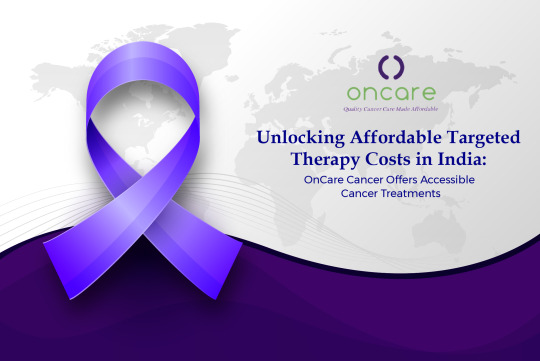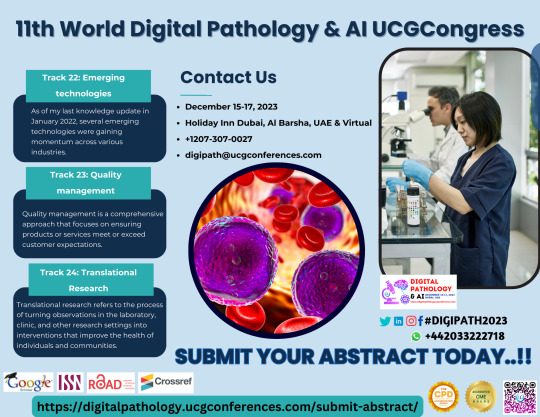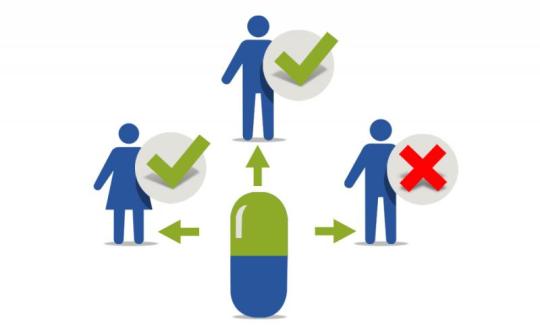#TargetedTherapy
Text
Johnson & Johnson Leads the Charge in Evolving Prostate Cancer Treatment Landscape: A Look at Market Growth and Trends
Prostate cancer is a common concern, but the outlook is improving! This article explores the promising future of prostate cancer treatment, fueled by a growing market and advancements like minimally invasive surgery and targeted therapy
A Look at the Prostate Cancer Treatment Market Growth and Trends Report
Prostate cancer is the most common cancer among men after skin cancer. Fortunately, the landscape of prostate cancer treatment is constantly evolving, offering a wider range of options for patients. This progress is reflected in the Prostate Cancer Treatment Market Growth and Trends Report, which paints an optimistic picture…

View On WordPress
#ClinicalTrials#FutureOfMedicine#healthcare#MedicalTechnology#menshealth#Oncology#PersonalizedMedicine#prostatecancer#targetedtherapy#urology
0 notes
Text
youtube
#HormoneTherapy#TargetedTherapy#PapSmear#GeneticCounseling#Immunotherapy#Biopsy#PreventiveCare#GynecologicOncology#oncology#cancer#Youtube
0 notes
Text
https://theindianpharma.com/blog-post/revolutionizing-cancer-treatment-the-impact-of-ibrutinib/
#IbrutinibImpact#CancerRevolution#CancerTreatment#OncologyBreakthrough#IbrutinibEffectiveness#CancerCareAdvancements#TargetedTherapy#ChronicLymphocyticLeukemia#MantleCellLymphoma#CancerResearch#PatientOutcomes#HealthcareInnovation#theindianpharma
0 notes
Text
Understanding Brain Tumors: Causes, Treatment Options, and the Expert Care of Valentis Cancer Hospital, the Best Treatment for Brain Tumor in UP
Brain tumors are a concerning health condition that can significantly impact an individual's life. While the exact causes of brain tumors are often unknown, several factors can increase the risk of developing this condition. In this blog, we'll explore the various factors that contribute to the development of brain tumors, as well as the available treatment options. Additionally, we'll highlight the specialized care provided by Valentis Cancer Hospital, recognized as the Best treatment for Brain tumor in UP

Factors that Increase the Risk of Brain Tumors:
Genetic Factors: Certain genetic conditions, such as neurofibromatosis and Li-Fraumeni syndrome, can increase the risk of developing brain tumors.
Radiation Exposure: Exposure to ionizing radiation, whether from medical treatments or environmental sources, has been linked to an increased risk of brain tumors.
Age: While brain tumors can occur at any age, the risk increases with age, with the highest incidence observed in older adults.
Gender: Some types of brain tumors, such as meningiomas, are more common in women, while others, like gliomas, are more prevalent in men.
Immune System Disorders: Certain conditions that affect the immune system, such as HIV/AIDS, may increase the risk of developing brain tumors.
Environmental Factors: Exposure to certain environmental toxins or chemicals may play a role in the development of brain tumors, although more research is needed to understand these relationships fully.
Treatment Options for Brain Tumors:
Surgery: Surgical removal of the tumor is often the first-line treatment for brain tumors, especially if the tumor is accessible and not located in critical areas of the brain.
Radiation Therapy: Radiation therapy uses high-energy beams to target and destroy cancer cells. It may be used alone or in combination with surgery or chemotherapy.
Chemotherapy: Chemotherapy involves the use of drugs to kill cancer cells. It may be administered orally or intravenously, depending on the type and location of the tumor.
Targeted Therapy: Targeted therapy uses drugs or other substances to specifically target cancer cells while minimizing damage to healthy cells.
Immunotherapy: Immunotherapy works by boosting the body's immune system to better recognize and attack cancer cells. It is an emerging treatment option for certain types of brain tumors.
Expert Care at Valentis Cancer Hospital:
When it comes to seeking the Best treatment for Brain tumor in UP, Valentis Cancer Hospital stands out as a leader in providing comprehensive and compassionate care. With state-of-the-art facilities and a multidisciplinary team of experts, including oncologists, neurosurgeons, and radiation oncologists, Valentis Cancer Hospital offers personalized treatment plans tailored to each patient's unique needs.
Conclusion:
Brain tumors are a complex and challenging condition, but with the right treatment and expert care, positive outcomes are possible. Understanding the factors that contribute to the development of brain tumors and exploring the available treatment options is essential for effectively managing this condition. For individuals in UP seeking the best possible care for brain tumors, Valentis Cancer Hospital offers the expertise and support needed to navigate this journey towards recovery and improved quality of life. Schedule a consultation with Valentis Cancer Hospital today and take the first step towards overcoming brain tumors and reclaiming your health.
#BrainTumorAwareness#BrainTumorTreatment#CancerCare#ValentisCancerHospital#BestCancerTreatmentUP#Oncology#Neurosurgery#RadiationTherapy#Chemotherapy#TargetedTherapy#Immunotherapy#CancerResearch#HealthAndWellness#MedicalAdvancements#PatientCare
0 notes
Text

Unlock affordable targeted therapy costs in India with OnCare Cancer. Access top-notch cancer treatments at a fraction of the cost. Trust our expert oncologists and state-of-the-art facilities for accessible and effective care. Contact us today to learn more.
#OnCareCancer#AffordableTherapy#CancerTreatment#TargetedTherapy#AccessibleCare#Healthcare#MedicalTourism#CancerAwareness#IndiaHealthcare#AffordableHealthcare#targetedtherapycostinindia
0 notes
Text

Call for Abstract!!! The abstract Submission deadline is Today. Submit an abstract for the CME/CPD-accredited 11th World Digital Pathology & AI UCGCongress from December 15-17, 2023, in Holiday Inn Dubai, Al Barsha, UAE & Virtual
.WhatsApp us: https://wa.me/442033222718?text=
Submit your abstract here: https://digitalpathology.ucgconferences.com/submit-abstract/
#LabToPatient#ScienceAndMedicine#ResearchImpact#PrecisionMedicine#PersonalizedMedicine#Genomics#TargetedTherapy#HealthcareInnovation#GenomicMedicine#PatientCare#MedicalResearch#CustomizedTreatment
0 notes
Text

Targeted Therapy in Cancer Treatment
A Precision Approach to Healing. This innovative method selectively identifies and attacks cancer cells, minimizing harm to healthy tissues. Join us in exploring the potential and impact of this tailored treatment.
👉 Join us as we unveil this educational content, paving the way to understand the remarkable impact of #TargetedTherapy in the fight against cancer.
2m
0 notes
Text
Can't we all just get along? Making precision medicine available for all
#genomicmedicine #individualizedmedicine #personalizedmedicine #precisionmedicine #targetedtherapy
#Health#genomicmedicine#individualizedmedicine#personalizedmedicine#precisionmedicine#targetedtherapy
0 notes
Text
The Evolution of Oncology Medicine: From Chemotherapy to Targeted Therapies

Over the years, the field of oncology medicine has seen substantial change, which has changed how we treat cancer. Scientific advances in medicine have transformed the fight against cancer, starting with the development of tailored medicines and moving on to more conventional chemotherapeutic approaches.
This blog will take you on a historical tour as we examine the development of oncology care and the crucial role that cutting-edge therapies have played.
We'll also stress how crucial it is to work with the top provider of oncology medications in order to get access to innovative anti-cancer medications.
The Era of Chemotherapy
The Era of Chemotherapy, spanning from the mid-20th century to the present, marks a significant chapter in cancer treatment. This systemic approach involves potent drugs targeting rapidly dividing cancer cells throughout the body, yielding tumour shrinkage and improved survival rates.
However, chemotherapy's non-selective nature brings debilitating side effects like nausea, fatigue, and immune suppression. Despite drawbacks, it remains vital, particularly for haematological malignancies and solid tumours. Ongoing research aims to refine protocols, minimising side effects while enhancing efficacy. As a cornerstone of cancer care, chemotherapy continues to offer hope and improved outcomes for patients worldwide.
The Dawn of Targeted Therapies
The emergence of Targeted Therapies signifies a transformative era in oncology medicine, prioritising precision and efficacy in cancer treatment. Unlike conventional chemotherapy, targeted therapies specifically address molecular alterations driving cancer growth, minimising collateral damage to healthy tissues.
By targeting specific molecular pathways, such as mutations or genetic abnormalities, these therapies offer a more precise and effective approach to cancer treatment. They have demonstrated remarkable efficacy across various cancer types, including breast, lung, colorectal, and melanoma.
While challenges like resistance and biomarker testing persist, targeted therapies represent a significant leap forward in personalised cancer care, offering hope for improved outcomes and quality of life for patients.
Advancements in Precision Medicine
Advancements in Precision Medicine have revolutionised oncology treatment, ushering in an era of personalised cancer care. Precision medicine entails customising treatment strategies based on individual genetic and molecular characteristics, leading to more targeted and effective therapies.
Techniques like genomic testing and molecular profiling enable oncologists to identify precise mutations or biomarkers driving cancer progression. This allows for the selection of targeted therapies tailored to each patient's unique profile, maximising treatment efficacy while minimising potential side effects.
The integration of precision medicine into oncology practice represents a significant leap forward in improving patient outcomes and quality of life in the fight against cancer.
The Role of Innovative Oncology Medicine Suppliers
One cannot stress how crucial it is to work with the top supplier of oncology drugs as the field is always changing. These vendors are essential to the availability of state-of-the-art anti-cancer medications, such as immunotherapies and targeted therapies. Healthcare practitioners may guarantee prompt access to the most recent developments in cancer treatment by working with reliable suppliers, giving patients battling this difficult illness hope and better outcomes.
Partnering with the Best Oncology Medicine Supplier
Access to innovative anti cancer drugs is paramount in delivering optimal cancer care. Partnering with the best oncology medicine supplier ensures healthcare providers have access to a comprehensive range of cutting-edge medications. From targeted therapies to immunomodulatory agents, collaborating with a reputable supplier guarantees timely access to the latest advancements in oncology treatment, empowering healthcare providers to offer the best possible care to patients.
Conclusion:
In a nutshell there has been a notable advancement in cancer treatment from the days of classical chemotherapy to the current era of precision medicine. These developments have changed the face of cancer care and given patients everywhere fresh hope and better results. It is crucial that we work with the top provider of oncology medicines as we advance in this rapidly changing industry.
We can get access to cutting-edge anti-cancer medications and provide individualised therapy that is tailored to each patient's specific needs by working with industry experts.
Let's work together to keep expanding the field of oncology medicine and assisting patients as they pursue their goals of recuperation and healing.
Credits : https://pharmaknowledgehubb.blogspot.com/2024/03/blog-post.html
#OncologyEvolution#CancerTreatment#PrecisionMedicine#TargetedTherapies#ChemotherapyAdvancements#InnovativeMedications#HealthcareInnovation#PersonalizedCare
0 notes
Text
Companion Diagnostics Market worth $5.04 Bn by 2030 Globally, at a CAGR of 12.3%, says iDataAcumen

The report "Global Companion Diagnostics Market - Global Forecast to 2030", is approximated to be USD 5.04 Billion in 2023, and it is projected to reach USD 11.3 Billion by 2030, at a CAGR of 12.3%.
In the realm of modern medicine, the emergence of companion diagnostics has ushered in a new era of precision and personalized healthcare. These innovative tools, which enable healthcare providers to tailor treatment strategies to the individual characteristics of each patient, are revolutionizing the way we approach disease management and therapeutic decision-making.
One of the key dynamics driving growth in the Companion Diagnostics Market is the increasing prevalence of complex and chronic diseases. As the global burden of conditions such as cancer, cardiovascular diseases, and infectious diseases continues to rise, there is a growing demand for targeted and effective treatment options. Companion diagnostics play a crucial role in this landscape, empowering clinicians to identify patients who are most likely to benefit from specific therapies, thereby optimizing treatment outcomes and reducing healthcare costs.
Moreover, advancements in genomic technology and biomarker discovery have expanded the scope of companion diagnostics, enabling the development of more sophisticated and reliable testing platforms. From next-generation sequencing to liquid biopsy assays, these cutting-edge technologies are enhancing the accuracy and sensitivity of diagnostic tests, paving the way for more personalized and effective treatment approaches.
Furthermore, the growing trend towards value-based healthcare and patient-centric approaches is driving the adoption of companion diagnostics across the healthcare ecosystem. By providing actionable insights into patient response to therapy, these tests not only improve clinical outcomes but also empower patients to take an active role in their own healthcare journey, fostering a sense of empowerment and collaboration between patients and healthcare providers.
In conclusion, the Companion Diagnostics Market represents a paradigm shift in healthcare delivery, offering a more precise, personalized, and patient-centric approach to disease management. As we continue to unlock the potential of companion diagnostics to transform the way we diagnose, treat, and prevent diseases, the future holds boundless opportunities for innovation, collaboration, and improved patient outcomes.
#healthcareinnovation#diseasemanagement#improvedoutcomes#companiondiagnostics#precisionmedicine#personalizedhealthcare#chronicdiseases#targetedtherapies#optimizedtreatment#genomictechnology#biomarkerdiscovery#diagnosticinnovation#valuebasedhealthcare#patientcentriccare#empowerment
0 notes
Text
we explore the ways in which biologics are used to provide effective and safe treatments for cancer.
#CancerBiologics #CancerTreatment #Immunotherapy #PrecisionMedicine #TargetedTherapies #MonoclonalAntibodies #CAR-TCellTherapy #CancerResearch #Immunooncology #Biotechnology #PersonalizedMedicine #HealthcareInnovation #CancerVaccines #BispecificAntibodies #OncologyAdvances #SafeCancerTreatment #EffectiveTherapies #PatientCare #CancerSurvivorship #medicalbreakthroughs
#CancerBiologics#CancerTreatment#Immunotherapy#PrecisionMedicine#TargetedTherapies#MonoclonalAntibodies#CAR-TCellTherapy#CancerResearch#Immunooncology#Biotechnology#PersonalizedMedicine#HealthcareInnovation#CancerVaccines#BispecificAntibodies#OncologyAdvances#SafeCancerTreatment#EffectiveTherapies#PatientCare#CancerSurvivorship#medicalbreakthroughs
1 note
·
View note
Text
Personalized Medicine and Data Analytics: Revolutionizing Pharma Commercialization
The pharmaceutical industry is undergoing a profound transformation with the advent of personalized medicine and the integration of data analytics. This convergence reshapes how drugs are developed, marketed, and delivered to patients, leading to a paradigm shift in pharma commercialization strategies. In this blog, we delve into the intersection of personalized medicine and data analytics, exploring how these two forces are revolutionizing how pharmaceutical products are being marketed.
Write to us at [email protected] to delve into the intersection of personalized medicine and data analytics, exploring how these two forces are revolutionizing how pharmaceutical products are being marketed.
Unleashing the Power of Personalized Medicine:
Personalized medicine, often called precision medicine, tailors medical treatment to the individual characteristics of each patient. This approach recognizes that patients have unique genetic, molecular, and clinical profiles influencing their treatment response. By leveraging advances in genomics and molecular diagnostics, pharmaceutical companies can identify patient subgroups more likely to respond positively to specific therapies.
The Role of Data Analytics:
Data analytics serves as the backbone of personalized medicine, enabling the extraction of meaningful insights from vast amounts of patient data. The data-driven approach encompasses a range of techniques, including machine learning and predictive modeling, to analyze patient genetics, biomarkers, medical histories, and even lifestyle data. These insights empower researchers and clinicians to make informed decisions about treatment plans, resulting in improved patient outcomes.
Revolutionizing Pharma Commercialization:
Targeted Marketing and Patient Engagement: Data analytics allows pharmaceutical companies to identify the patients most likely to benefit from their therapies. This enables highly targeted marketing efforts and personalized communication strategies. Companies can establish stronger connections and foster brand loyalty by engaging patients in a more tailored manner.
Optimized Clinical Trials: Personalized medicine calls for smaller, more focused clinical trials. Data analytics aids in patient selection, trial design, and endpoint determination, leading to quicker and more cost-effective trials. This accelerates the development process and speeds up time-to-market.
Healthcare Economics and Value Demonstration: Pharma companies can use data analytics to demonstrate the value of their personalized therapies to payers and healthcare providers. Companies can negotiate favorable reimbursement agreements by showcasing how these treatments improve patient outcomes and reduce healthcare costs.
Real-World Evidence Generation: Post-market surveillance and real-world evidence collection have become integral to personalized medicine commercialization. Data analytics enables the continuous monitoring of treatment outcomes and safety profiles in diverse patient populations, further validating the efficacy and safety of personalized therapies.
Supply Chain Optimization: Personalized medicine often involves manufacturing therapies for smaller patient populations. Data analytics can optimize supply chain management, reducing waste and ensuring the right treatments reach the right patients at the right time.
Challenges and Considerations:
Data Privacy and Security: Handling patient data requires stringent data protection measures to ensure privacy and compliance with regulations.
Ethical Considerations: Balancing the potential benefits of personalized medicine with ethical considerations about data use and patient consent is paramount.
Interoperability: Integrating disparate data sources, such as electronic health records and genetic data, presents technical challenges that must be addressed.
Conclusion:
The fusion of personalized medicine and data analytics is transforming the pharmaceutical landscape, from drug discovery to patient engagement. By harnessing the power of patient-specific insights and leveraging advanced analytics, pharma companies are revolutionizing their commercialization strategies. As this exciting journey continues, stakeholders must remain committed to responsible data use, patient privacy, and innovative approaches that improve patient care and outcomes.
Visit our website now: https://www.anervea.com/
#PersonalizedMedicine#DataAnalytics#PharmaCommercialization#HealthcareInnovation#PrecisionMedicine#DataDrivenHealthcare#PharmaTech#PatientCentric#HealthTech#MedicalInnovation#DataRevolution#TargetedTherapies#DataScience#MedTech#PharmaMarketing#IndividualizedTreatment#HealthcareAnalytics#CommercializationStrategies#PatientData#DrugDevelopment#DataInsights
0 notes
Text
Biomarker Testing Services: Transforming Healthcare Delivery and Patient Outcomes
The global biomarker testing services market size is expected to reach USD 1,399.4 million by 2030. Growing investment in pharmaceutical R&D, increasing demand for the precision medicine used for cancer treatment, and growing burden of the infectious and chronic diseases facilitating the demand for the biomarker testing are some of the major factors driving the market's growth.

Gain deeper insights on the market and receive your free copy with TOC now @: Biomarker Testing Services Market Report Report
There has been a consistent rise in clinical trials during the last 5 years. For instance, according to ClinicalTrials.gov, more than 262,298 trials were registered in 2018, whereas as of September 2022, above 399,518 trials were registered. Clinical trials are expected to improve in the coming years owing to the increase in funding for clinical research. This is expected to boost demand for medicine discovery research activities and thus support demand for biomarker testing in the post-pandemic period.
The FDA approval rate for medicines through the use of biomarkers has improved, over the years. For instance, in 2016, more than 26 trials were approved by the FDA that used biomarkers for medicine testing, whereas, in 2019, 36 trials were approved by the FDA that used biomarkers for medical testing. Clinical trials now require biomarker-related data for medicine approvals, as it provides information about the action of medicine in the body and thus speeds up the medicine approval process. This is expected to improve demand for biomarker testing during the forecast period.
Various biopharmaceutical companies are taking initiatives to improve the diagnosis rate of the cancer patient through biomarker testing. For instance, in April 2021, a biopharmaceutical company, Amgen launched the Biomarker Assist Program. As per this program, patients with metastatic (stage IV) non-small cell lung cancer (NSCLC) were provided biomarker testing, to check the presence of oncogene biomarkers, which help in targeted therapies. Such initiatives by the market players are likely to support the market's growth.
According to the IQVIA, report on oncology trends, clinical trials for cancer have been increasing for the last 10 years. For instance, in 2011, 1,242 trials were registered for cancer, and as of 2021, 2,335 trials were registered for cancer. The number of clinical trials intended for cancer is expected to rise even further owing to the growing prevalence of the disease. There is an increasing demand for targeted therapies designed for cancer that use biomarkers for testing the efficacy of the drug in the research. Increased cancer research in the coming years is expected to boost demand for the biomarkers designed for cancer testing and thus support the market in the post-pandemic period.
#BiomarkerTesting#PrecisionMedicine#PersonalizedHealthcare#MedicalDiagnostics#HealthTech#Biomarkers#HealthcareInnovation#PatientOutcomes#ClinicalResearch#DiseaseDetection#TargetedTherapies#MedicalInnovation#HealthcareTrends#MarketAnalysis#HealthcareIndustry#DiagnosticRevolution#HealthcareMarket#MedicalResearch#Bioinformatics#HealthcareStrategy
0 notes
Text
Empowering Hope: Cutting-edge Prostate Cancer Treatment at Valentis Cancer Hospital, Meerut
Facing a Prostate Cancer Diagnosis? Find Hope at Valentis Cancer Hospital in Meerut
Facing a prostate cancer diagnosis can be overwhelming, but at Valentis Cancer Hospital in Meerut, we stand as a beacon of hope and healing. Our dedicated team of oncologists, surgeons, and specialists are committed to providing world-class care and innovative treatment options to patients battling prostate cancer.

Compassionate and Comprehensive Care
At Valentis, we understand the importance of a comprehensive approach to cancer care. From the moment you walk through our doors, you'll be greeted with compassion, empathy, and personalized attention. Our multidisciplinary team works collaboratively to develop a tailored treatment plan that addresses your unique needs and concerns.
Advanced Treatment Options for Prostate Cancer
We offer a wide range of advanced treatment options for prostate cancer, including:
Robotic-Assisted Surgery
Our experienced surgeons utilize the latest robotic technology to perform minimally invasive procedures, leading to faster recovery times and better outcomes.
Radiation Therapy
Our state-of-the-art radiation oncology department offers advanced techniques such as intensity-modulated radiation therapy (IMRT) and stereotactic body radiation therapy (SBRT) to precisely target cancer cells while minimizing damage to surrounding healthy tissue.
Hormone Therapy
Our medical oncologists specialize in hormone therapy, which can help shrink or slow the growth of prostate tumors by reducing the levels of male hormones in the body.
Targeted Drug Therapies
We offer access to the latest advancements in targeted drug therapies, including immunotherapy and precision medicine, which can help improve treatment outcomes and quality of life for patients with advanced prostate cancer.
Comprehensive Supportive Care Services
In addition to cutting-edge treatments, we provide comprehensive supportive care services to help manage side effects, alleviate symptoms, and improve overall quality of life during and after treatment.
Empowering Hope and Healing
At Valentis Cancer Hospital, we're dedicated to empowering hope and healing in the face of prostate cancer. With our experienced team, advanced technology, and compassionate approach to care, you can trust that you're in capable hands every step of the way.
Take Control of Your Health
Don't let prostate cancer control your life. Take control of your health and schedule a consultation with our expert team at Valentis Cancer Hospital today. Together, we'll navigate this journey towards recovery with strength, resilience, and optimism.
Your Journey to Healing Starts Here
Discover the best Prostate Cancer Treatment in Meerut at Valentis Cancer Hospital. Your journey to healing starts here.
Contact us today to learn more about our services and to schedule your consultation.
#ProstateCancer#ProstateCancerTreatment#CancerCare#Meerut#ValentisCancerHospital#Oncology#CancerTreatment#RoboticSurgery#RadiationTherapy#HormoneTherapy#TargetedTherapies#SupportiveCare#PatientCare#HealingJourney#CancerSupport#AdvancedCancerTreatment#MedicalExcellence#CompassionateCare#CancerRecovery#HealthAndWellness#FightCancer#HopeAndHealing
0 notes
Text
"Aptamers vs. Antibodies: The New Frontier in Biotechnology"
Aptamers, short single-stranded DNA or RNA molecules that can bind to specific targets with high affinity and specificity, are emerging as powerful tools in biotechnology and medicine. These versatile molecules are increasingly used in a wide range of applications, including diagnostics, therapeutics, and drug delivery systems. Aptamers offer several advantages over traditional antibodies, such as easier synthesis, lower immunogenicity, and the ability to be chemically modified for enhanced stability and functionality. Technological advancements in SELEX (Systematic Evolution of Ligands by EXponential enrichment) and high-throughput sequencing are accelerating the discovery and optimization of aptamers, enabling more rapid development of targeted treatments and precision diagnostics. The growing interest in personalized medicine and targeted therapies is driving the adoption of aptamers in clinical research and pharmaceutical development. However, challenges such as the need for robust in vivo stability and efficient delivery methods remain. Despite these hurdles, the future of aptamers is bright, with ongoing research and development poised to unlock their full potential in revolutionizing healthcare.
#Aptamers #Biotechnology #Diagnostics #Therapeutics #DrugDelivery #PrecisionMedicine #SELEX #TargetedTherapies #PersonalizedMedicine #HealthcareInnovation #BiotechResearch #ClinicalResearch #PharmaTech #MolecularBiology #MedicalAdvancements
0 notes
Text
"Combining Forces: Integrating Therapies for Lung Cancer"
Lung cancer therapeutics have seen remarkable advancements, offering new hope to patients through a variety of innovative treatments. Targeted therapies, which focus on specific genetic mutations within cancer cells, such as EGFR, ALK, and ROS1, have transformed the treatment landscape, providing more personalized and effective options. Immunotherapies, including immune checkpoint inhibitors like pembrolizumab and nivolumab, have significantly improved survival rates by enabling the immune system to better recognize and attack cancer cells. Additionally, advancements in precision medicine allow for treatments that are tailored to the unique genetic profile of each patient's tumor, enhancing the efficacy and reducing side effects.
Chemotherapy and radiation therapy continue to play crucial roles, often in combination with these newer therapies, to maximize treatment outcomes. The development of liquid biopsies, which detect cancer-related genetic material in the blood, further aids in early diagnosis and monitoring of treatment response. As research continues to evolve, the integration of artificial intelligence and machine learning is poised to revolutionize the way lung cancer is diagnosed and treated, leading to even more personalized and effective therapeutic strategies. These cutting-edge developments in lung cancer therapeutics are not only extending lives but also improving the quality of life for patients worldwide.
#LungCancer #CancerTherapeutics #TargetedTherapy #Immunotherapy #PrecisionMedicine #Chemotherapy #RadiationTherapy #LiquidBiopsy #AIinHealthcare #CancerResearch #Oncology #PatientCare #CancerTreatment #MedicalInnovation #HealthTech
0 notes